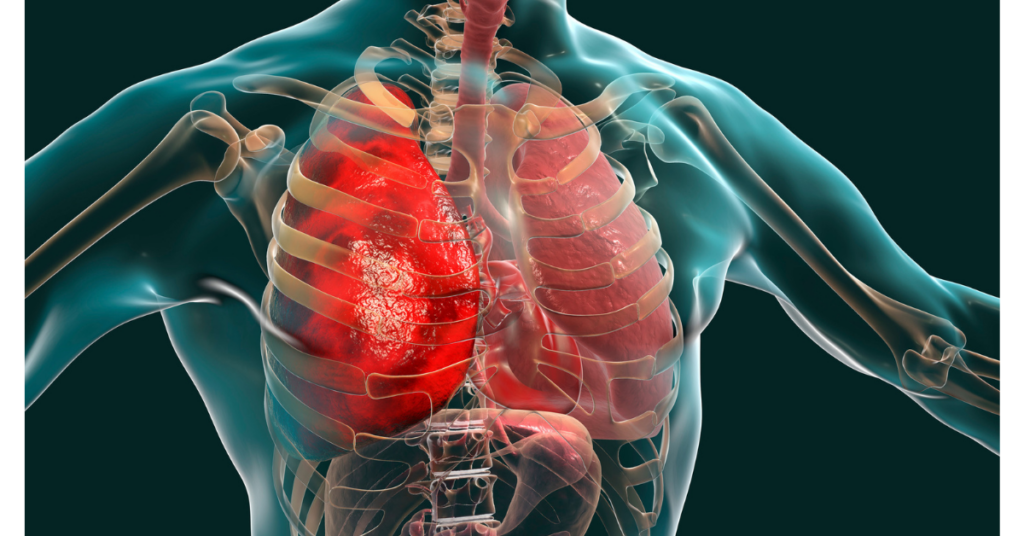What is Bronchitis?
Bronchitis is a condition where inflammation of the tubes that lead to the lungs results in a build-up of mucous that makes breathing difficult. The term bronchitis takes its name from the tubes called bronchi, and in severe cases the tubes can become ulcerated and dilated. Bronchitis is more commonly seen in the elderly, yet it affects all age groups and both sexes. It can be either acute or chronic.
What are the symptoms and causes of chronic and acute bronchitis?
Chronic Bronchitis results, not from an infection, but from frequent irritation of the lungs in the form of smoke or fumes. Allergies too can cause chronic bronchitis.
A cough (usually worse in the mornings) appearing around the winter months is usually the first sign of the onset of bronchitis. Breathlessness is due to there being large amounts of mucus present. Because the heart has to work very hard in someone with chronic bronchitis, the heart may fail. The hard work occurs when the exchange of oxygen and carbon dioxide takes place in the lungs, a process that impeded by the presence of the mucous. Environmental problems have long been recognised as increasing the chances of people developing respiratory infections, namely damp and cold places.
Acute Bronchitis is causes by a bacterial or viral infection or sometimes the combination of the two. Bronchitis can develop into pneumonia, but most people only have an acute condition for few weeks with not further complications. General feelings of being unwell and feverish are experienced so the symptoms are not too dissimilar to that of a cold. A painful throat with chest pains, coughing, and wheezing, with pus-containing mucus are often present. Acute cases are more painful than Chronic cases. Medical help should always be sought if you suspect you have this condition.
Complementary Approach
Diet Those with a lowered resistance to infection are at risk so avoid getting run down by paying attention to what you eat. Drink plenty of fluids, including herbal teas, and eat a good balanced diet as this ensures the body gets all the nutrients it needs. Nature gave us antibiotics in the form of garlic so eat plenty of it.
Avoid eating all processed foods, sugar, white flour products, and dairy produce as they are mucous forming. Also avoid beans, cabbage, and cauliflower as they produce gas and put a strain on the body.
The following information does not constitute a prescription or recommended dose – studies have been conducted using the dosages stated and are included for your information only. The nutrients mentioned here are often recommended by Health-Care practitioners
Nutritional Supplements
N-Acetyl Cysteine (NAC)1, 2 helps break down mucus and acts as an antioxidant.3 When taking NAC you may not see the benefits for the first 6 months. Take 200 mg twice a day.
Colloidal Silver may help promote healing, as it is a natural antibiotic and destroys viruses, bacteria, and fungus. Take as directed on label. It is not strictly a nutritional supplement.
Natural Beta-Carotene protects and repairs lung tissue. Take 50,000 IU daily.
Quercetin can help if the bronchitis is triggered by an allergic reaction as it is a great antihistamine. Take 500 mg 3 times a day.
Vitamin A heals and protects all tissues. Take 20,000 IU twice a day for 1 month and then reduce the dose to 15,000 IU a day. Do not exceed 10,000 IU a day if you are pregnant.
Vitamin C thins the mucus and therefore is helpful in the treatment of respiratory conditions. Those who have a high intake of vitamin C are less likely to be diagnosed with bronchitis4 even though no studies have been carried out to suggest that taking this vitamin while you have bronchitis will help with the condition, it is recommended that you supplement with this vitamin. Take 1,000-3,000 mg 3 times a day. Use the buffered powder form.
Herbs
There are no known studies that support the claim that the following herbs can help with the treatment of this condition. However, the herbs mentioned here have historically been considered beneficial in the treatment of various conditions including bronchitis. Therefore, they are often recommended by healthcare practitioners.
Echinacea and Goldenseal extracts boost the immune system and also help fight viruses and bacteria. Make sure you buy an alcohol-free brand and, at the first signs of illness, put half a dropperful of the extract in your mouth. You must do this every 3 hours holding the extract in your mouth for 10 minutes before swallowing.
Ginseng especially Siberian Ginseng is very good for bronchial passages and the lungs, as it reduces inflammation. Iceland moss is said to be good for mucous congestion. A qualified herbalist will be able to advice on usage.
All of the following herbs have been found to be effective in the treatment of lung and bronchial disorders: Chickweed, Ginkgo, Mullein, Lobelia, and Black Radish. A qualified herbalist will be able to advise on usage.
It is important that your body expels the mucous so never suppress your cough with drugs.
Get lots of rest, especially if you have a fever, with the window ajar so you can get lots of fresh air. If you cannot get hold of a humidifier, place a pan of water in the room over a radiator, to keep the air moist. A hot water bottle placed on the chest and back area will reduce inflammation.
Get yourself allergy tested as bronchitis has been linked to allergies in many reports.5,6,7
Do not smoke and avoid smoky atmospheres.
References
- Boman G, Backer U, Larsson S, et al. Oral acetylcysteine reduces exacerbation rate in chronic bronchitis: Report of a trial organized by the Swedish Society for Pulmonary Diseases.Eur J Respir Dis1983;64:405-15.
- Multicentre Study Group. Long-term oral acetylcystiene in chronic bronchitis. A double-blind controlled study. Eur J Respir Dis1980; 61: 111: 93-108.
- Van Schayck CP, Dekhuijzen PNR, Gorgels WJMJ, et al. Are anti-oxidant and anti-inflammatory treatments effective in different subgroups of COPD? A hypothesis. Respir Med1998;92:1259-64.
- Sridhar MK. Nutrition and lung health. BMJ 1995;310:75-76.
5. Bsucinco L, Businco E. Allergic pathogenesis in chronic bronchitis. Allergol Immunopathol(Madr) 1975;3:1-8.
6. Krawczyk Z. Role of allergy of the immediate type in the pathogenesis of chronic bronchitis in adults. Penumonol Pol1976;44:829-36 [in Polish].
7. Shanghai Chronic Bronchitis Etiology, Prevention and Treatment Coordinating Group. Preliminary study on the relation between allergy and chronic bronchitis. Chin Med J 1976;2:63-68.


